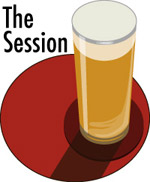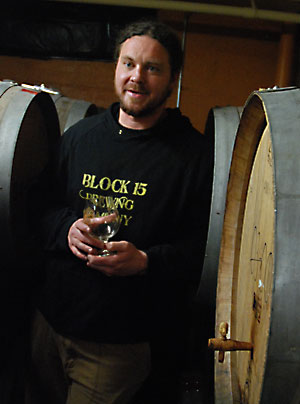MONDAY BEER LINKS, MUSING 10.05.15
When you begin forgetting about your history is when you're at highest risk of selling it out. That's today's "craft" beer observation.
— Roger A. Baylor (@newalbanian) September 29, 2015
Elysian, Anheuser-Busch, and the Fight for the Soul of Seattle’s Beer.
A profile of Dick Cantwell. “He was the sole nay vote in Elysian Brewing’s sale to Anheuser-Busch. Now the brewer’s legacy is at the center of the battle for the soul of Seattle beer.” Drop it in Pocket, take the time to enjoy it. [Via SeattleMet]
‘What Beer Costs’ — Why we need more flexibility in the market.
It looks to me as if there is a fair amount of flexibility in the market as is, but I don’t see the point of people complaining about the price of any particular beer. As Stephen Beaumont pointed out one of the times this debate popped up years ago there are people out there willing to pay these high-end prices. That’s the bottom line. [Via Good Beer Hunting]
How Brewers Are Churning Out Inexpensive Tangy Sours.
Beware the kettle sour beer.
We begin the sour portion of these links with two views of kettle souring. People get really worked up about this. [Via Denver Post and OBP]
Why Brew Gose Instead of Mild?
During the GABF awards ceremony a week again Saturday Jonathan Cutler from Piece Brewery in Chicago leaned back after he saw that there were 111 entries in the German-style sour ale category and said, “There were about a dozen when I judged them a few years ago.” In fact, there were only 13 entries in 2009. This reflects more interest in brewing Berliner Weiss as well as Gose. [Via Boak & Bailey]
Power Of Sour: How Tart Is Reclaiming Turf From Sweet.
How wild is your beer?
Two more parts to the story of “wild and sour.” Food and what does it mean to call a beer wild? (The second story links back to the NPR one, bringing us full circle – pretty impressive, right?) [Via NPR and All About Beer]
Dear Guinness: Here’s How Not to Debut Your Crappy New Guinness Nitro IPA.
Brilliant. [Via fooboz, h/T Stephen Beaumont]
The story behind first Alabama beer to win a Great American Beer Festival medal in 5 years.
Somewhere Fred Eckhardt is smiling. [Via AL.com]
2 Beers 2 Pops – Kids are drinking in Germany.
“Finally, I awakened to this surreal experience going on next to me. The oldest youngster had a beer in front of her bigger than mine, or so it seemed. She looked like she was 14, 15? I have no idea but she was clearly not 21. Kids can drink beer as early as 16 in Germany – and this is the basis for my story.” [Via SommBeer, h/t Joe Stange]
Whalez Bro: A big problem for beer geek culture.
“You will never learn more about beer if you treat it as an item to be collected, rather than a beverage to be enjoyed.” [Via The Portland Phoenix]
Great American Beer Festival versus BeerGraphs.
I’ll cut right to the question in the conclusion: “As much as these are well-respected judges with well-trained taste buds, they come with a much smaller sample than the statistics on our leaderboards. They move faster and can tell you something in a smaller sample, but once you get thousands of people to weigh in on a beer… would you still take the opinion of a small group of judges over thousands of ratings?” But I really like this in the comments: “This is like comparing a baseball players WAR to his fantasy value.” Definitely written from deep in the rabbit hole looking up. [Via BeerGraphs]
Beer as an agent of change.
“It takes bricks and people to build a neighborhood, but don’t forget to bring along the beer.” [Via Joe Sixpack]
And a new game that can be played in the US as well as the UK …
Sold murky beer? Call it out on social media with #murkshaming, says guest blogger Quinno http://t.co/Or6tsFBsiB pic.twitter.com/rFo6VVh4Mf
— JJB (@jeffreyjohnbell) October 3, 2015
 Alan McLeod has posted the roundup for The Session #104 with a headline that asks
Alan McLeod has posted the roundup for The Session #104 with a headline that asks  It was March of 2011 and Nick Arzner interrupted a story he was telling about the logistics of installing a coolship in the basement of a place built in Corvallis, Oregon, in 1926. He pulled aside a large piece of plywood that separated two rooms from the others in the labyrinth beneath the dining area of Block 15 Restaurant & Brewery, which he and his wife opened in 2008.
It was March of 2011 and Nick Arzner interrupted a story he was telling about the logistics of installing a coolship in the basement of a place built in Corvallis, Oregon, in 1926. He pulled aside a large piece of plywood that separated two rooms from the others in the labyrinth beneath the dining area of Block 15 Restaurant & Brewery, which he and his wife opened in 2008.